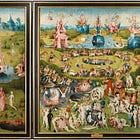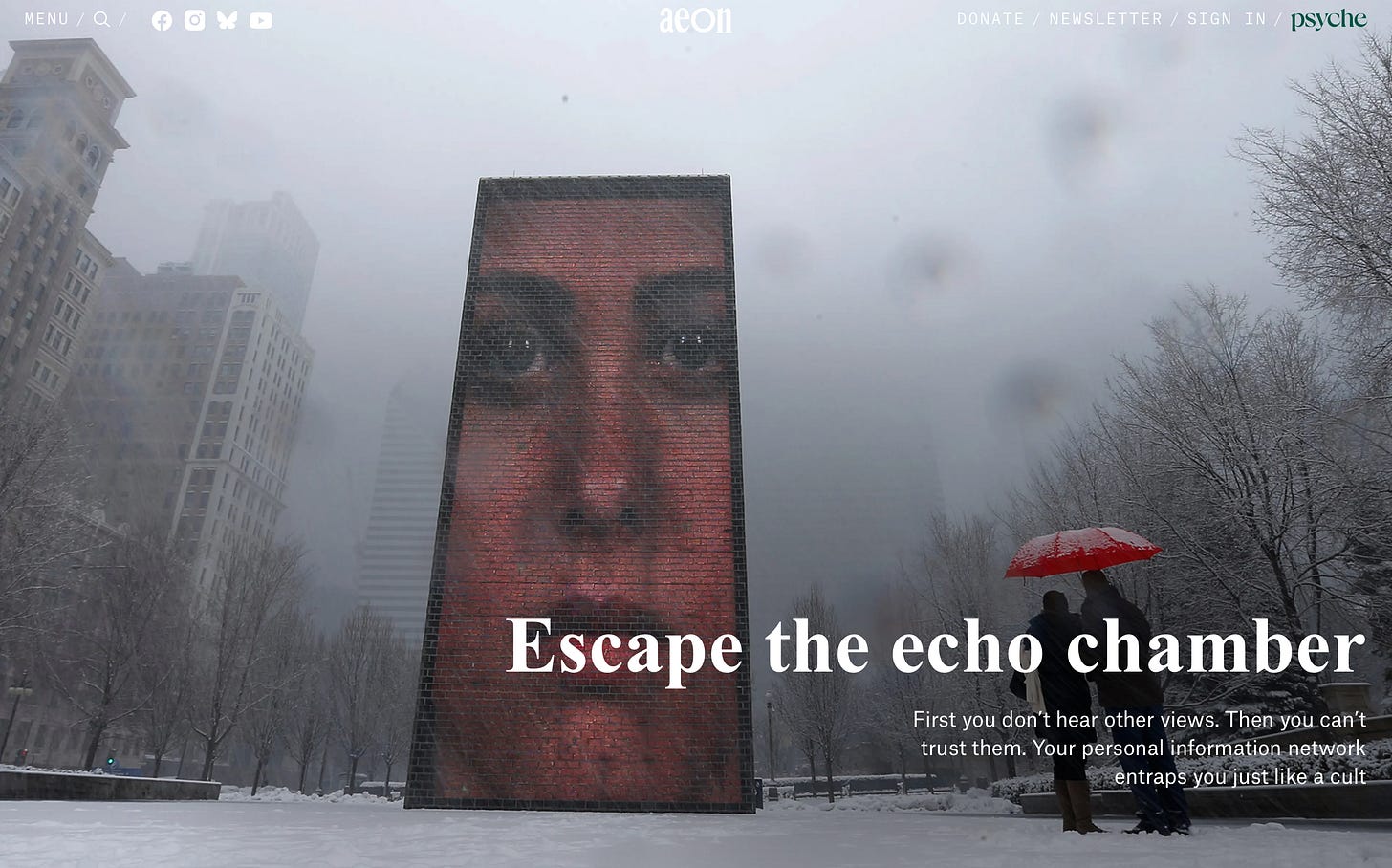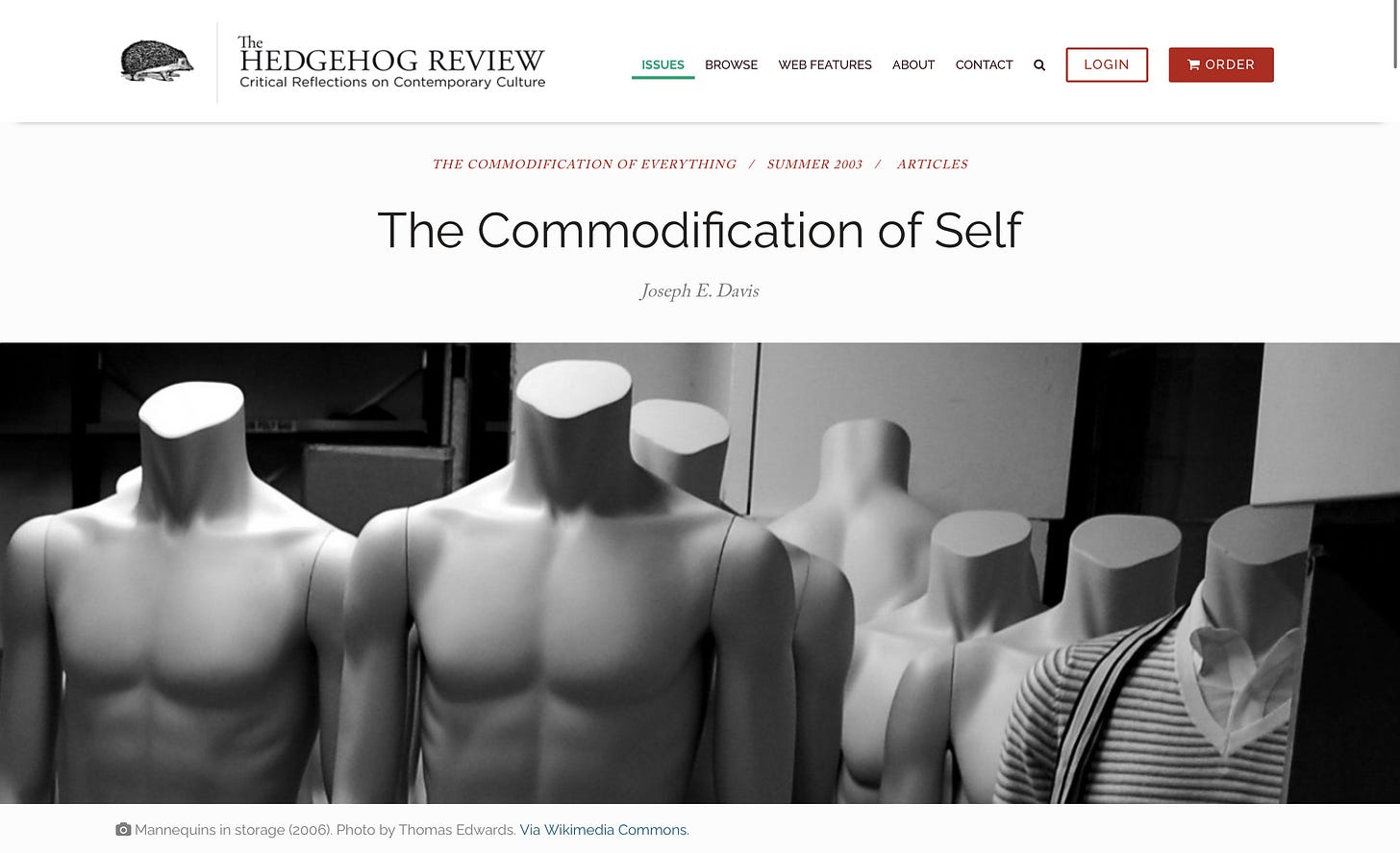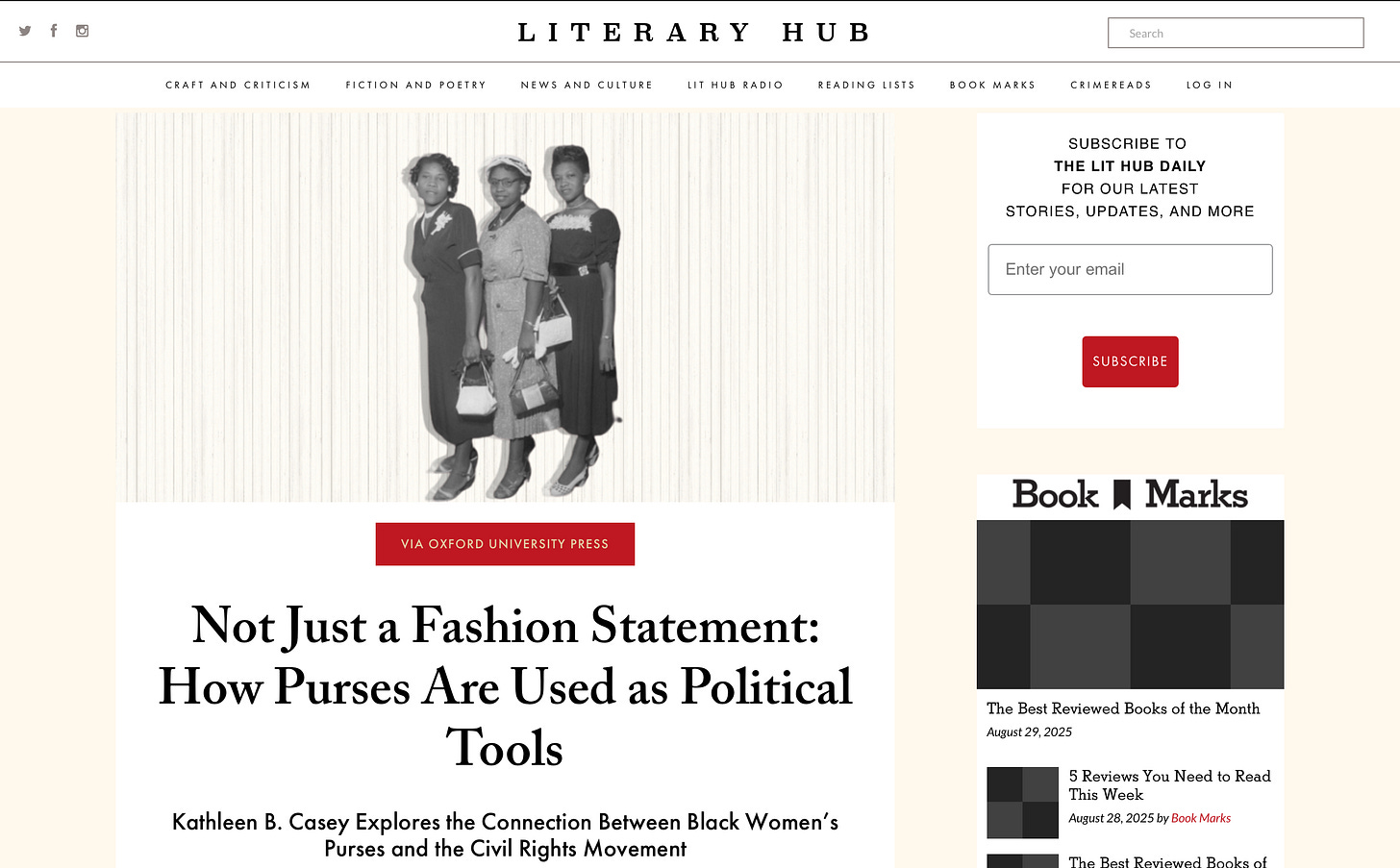Media to consume this week instead of doomscrolling - 31.08.25
Notes on echo chambers, archetypes, AI and books, commodification of the self, consumer behavior, politics and fashion, and more.
Welcome to this week’s media roundup! Looking back at the pieces I found this week, there is a common thread of understanding our identity and consumption which is something I’ve been reflecting on a lot lately. Last week I shared my art literacy guide in which I included a documentary series that really dives into these topics and their history so if you are interested make sure to check it out! In the meantime, I hope you enjoy this week’s roundup :)
Escape the echo chamber on Aeon
Essay highlighting the discrepancies between echo-chambers and epistemic bubbles and breaking down how these intricate systems can brainwash people into a cult-like mindset.
Echo chambers are everywhere: on your social media feeds, in your religion, in your political party, and even in your friend group. However, it is—to a certain extent—up to you whether you get stuck in them or not. I believe that this looks different for everyone, as having the tools to actually identify and deconstruct certain beliefs can most certainly be a privilege.
As the essay mentions, trust plays a major role when it comes to shifting the worldview of an echo chamber member. Previously, I got quite frustrated when someone stuck in this cult-like mindset refused to acknowledge fact-based evidence, but understanding that these beliefs are deeply rooted not in rationality, but in the ego, allowed me to see things from a different perspective.
I have found that leaning into the uncertainty and paradoxical nature of our belief systems allows for a flexibility in which changing your mind is an essential element for growth. This is not only relevant as we evaluate our personal beliefs, but also to our approach when engaging with people whose beliefs don’t align with ours.
Podcast analyzing how historically and philosophically, the archetypes of the fool and death have co-existed in a way that reflects the intricacies of the human psyche.
Last week I was speaking with a couple of friends about death. It was not morbidly or darkly but rather through the understanding of it as the inevitable shadow of life. When I later came across this podcast, I looked back at this conversation and understood that the energy through which we were approaching this very taboo topic was through the embodiment of the fool.
Over the last few years, I have found myself fascinated with archetypes, particularly the ones in tarot. This is not necessarily out of mysticism but as a way of understanding my identity through a collective symbolic language that carries so much significance. I have found that digging into the history and meaning of certain symbols has not only allowed me to understand external dynamics and hierarchies, but also how these have been instilled within myself.
Substack post critiquing the performativity and optimization of reading in the age of social media as AI continues to infiltrate literary and leisure spaces.
In case you are not aware, there have been ads on TikTok for an app that claims to let you read books significantly faster—aka it is an AI summarizer for books. Under that logic, would having a recipe be the same as tasting the dish? Would saving a Google image of a destination mean that I went there? Would owning the same item as a celebrity mean that I am them? Obviously not. I know these are outlandish comparisons but understanding the motivation behind these aspirational ways of consumption is not.
The author makes some really great points so I encourage everyone to go read their piece. The one thing I would like to add is that when it comes to consumption, and specifically media consumption, the medium is just as relevant as the content a lot of the time. AI completely bypasses processes and skills that are necessary to properly grasp whatever it may be we are consuming by boiling it down to the most elemental, soulless, and sloppy version of it.
The Commodification of the Self on The Hedgehog Review
Essay dissecting how the self has been commodified through a framework of creating one’s identity through consumption and optimization.
Under capitalism we are goods and services before we are human, objects to be endlessly customized, optimized, and upgraded. We are manipulated into having problems to then be sold the solutions, all while making us believe this was a way of exercising our free will. It’s difficult to understand who we are if we outsource our identity through the things that we consume, especially when these systems are set up to homogenize us through categories for easier selling.
This makes me think about my personal choices of consumption and how these have shifted over the last few years. Of course, it’s inevitable not to be a part of this system, however, the awareness of it does provide—to a certain extent—the ability to navigate it better.
Video essay outlining how art can make us reframe how we perceive value, debt, and our role as consumers.
It’s difficult to explain exactly what this video is about so I encourage you to go watch it yourself. She makes these brilliant connections across a wide array of areas and topics through really interesting references, all of which I have now added to my reading list. What interested me the most was her analysis of value through different forms and pieces of art, especially since I have been diving into art and visuals as a way of understanding the world lately.
I find it particularly relevant to draw the parallels between art and marketing, especially at this moment in time when everything is seen under the lens of monetary consumption. This is because our interpretation of value is the ultimate driver to understand our role as consumers because as we determine the intrinsic value of things—both symbolic and tangible—we determine the lengths we are willing to go to adopt these things into our identity.
Substack post arguing that the recent trend of creating a monthly curriculum is void of significant value unless it is framed with the purpose of creation over consumption.
Have you ever read a book or an article and just completely forgotten about everything that happened within the next few days? Hell, even just scrolling on TikTok I forget what I watched ten seconds ago. Consuming over creating was one of the flaws that I saw within myself when I began this journey of more mindful media consumption but identifying the issue is the first step toward doing something about it.
I’m far from where I want to be on this scale but it is something that I am very consciously working on. I have found that the number one thing that has allowed me to grow in this regard is learning to ask the right questions. Understanding consumption as a bilateral dynamic through which you are in a dialogue with the author of a piece creates the balance needed for creation.
Not Just a Fashion Statement: How Purses Are Used as Political Tools on Literary Hub
Essay exploring how purses served a pivotal role for black women in the civil rights movement as they were part of a larger political shift.
The intersection between fashion, culture, and politics is most definitely one of the most fascinating things about the choices that we make when we decide what we wear every single day. A lot of people have such a superficial view of what fashion is as they refuse to see the layers that hide behind this facade of appearances. I have noticed that there is very little understanding of both fashion history and fashion as art as clothes get reduced exclusively into function and aesthetics over significance.
This piece got me thinking about this year’s Met Gala theme which was “Superfine: Tailoring Black Style” and how controversial this event always is. Beyond the mixed feelings I have regarding celebrity culture, I do believe that these spaces are a great way for important fashion narratives to reach a more mainstream public. This is neither simple nor coherent since a lot of the time as you have massive luxury brands taking on these narratives—often completely missing the mark—but at least it opens up a space for artistry and larger discussions to take place.










It is my first week of cutting out social media and honestly it is so refreshing and calming to read your recommendations 💃🏽. Just finished the essay about personal commodification, something I intuitively already felt but now has contextualized to me through the essay. Thank you❤️
thank you so much for recommending my piece, i feel deeply honored. i completely agree with your addition: AI strips things down until there's nothing left.
anyway, i love your page, wish i had found it sooner! 💌